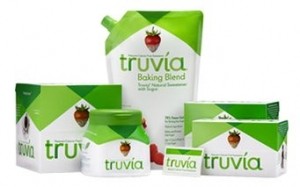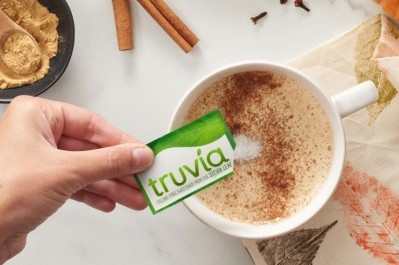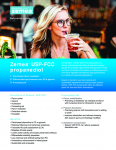Truvia brand leader: 'When people see how much added sugar is in their food, I think they are going to be surprised'
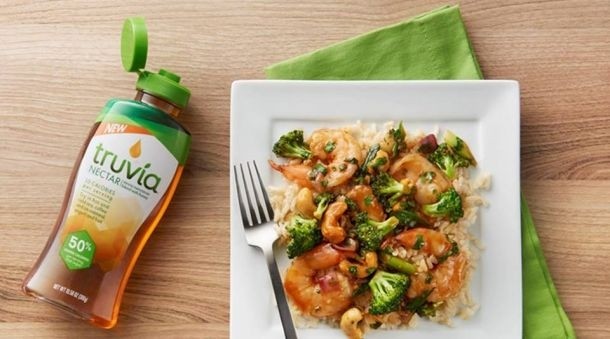
Speaking to FoodNavigator-USA following the launch of Truvia Nectar, Cargill’s new blend of honey, sugar and stevia leaf extract (boasting 50% fewer calories than sugar), global Truvia brand leader Brian Nau predicted that at the very least, the new labels will start a conversation about sugar, which is good news for Truvia.
“From a trade perspective, a lot of manufacturers have already been anticipating this [the FDA move on added sugar], but what I’m excited about from a consumer point of view is that this is going to generate more conversations around sugar consumption.
“More consumers will be looking at labels and when people see how much added sugar is in their food, I think they are going to be surprised.”
The overall sugar substitute category is declining by about 3-4% but that is being entirely driven by the artificial sweetener brands
In grocery retail, the space devoted to sugar substitutes has remained pretty constant, he said, although space within the category has been re-allocated to reflect the growth of products with a more ‘natural’ positioning using a variety of sweeteners including stevia, monk fruit, xylitol and erythritol.
“The overall sugar substitute category is declining by about 3-4% year-on-year, but that is being entirely driven by the artificial sweetener brands, which have been declining in the double digits for the past several years, whereas the natural sweeteners are growing at around 4-6% a year," he added. "But as they are a smaller part of the category, the growth has not offset the decline in artificial.
“Truvia [a brand built around stevia leaf extract] is the leader in the natural space with double the share of our next competitor, but we are also #2 in the sweetener category overall behind Splenda (sucralose).”
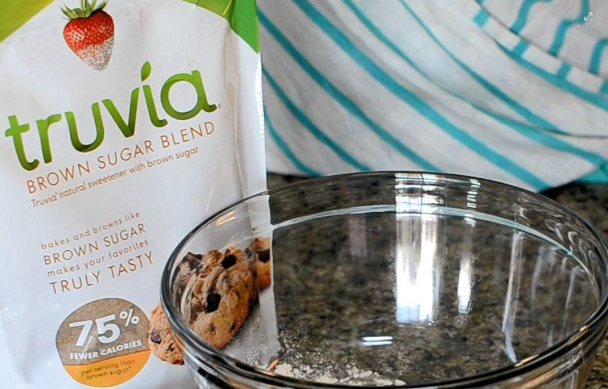
We are seeing millennials come in to the category
So who buys sugar substitutes, has the category shopper profile evolved over the years, and what needs to change to bring new consumers in?
“We are already seeing a shift,” said Nau. “The category shopper is historically an older consumer but with the growth of stevia we are seeing millennials come in to the category and they are influencing their parents and converting them as well."
When you think about the sugar substitute category, he added, “It has been [historically] been defined by zero calorie sweeteners targeting people that are limiting sugar consumption because they have to, for dieting reasons or medical reasons – for example they are diabetic.
“But we’re trying to broader the conversation to say limiting sugar consumption is just part of a healthier lifestyle, which means our products are for everyone."
Limiting sugar consumption is part of a healthier lifestyle
A key part of the strategy at Truvia, therefore, has been developing products with broader appeal, notably blended sweeteners that offer meaningful sugar reductions (50%, 75%) but are not positioned as ‘diet’ products, a word that has fallen out of favor in food marketing.
“We are seeing a lot of small brands entering the category with natural sweeteners, but they are still coming in with traditional products, primarily sachets, which are an entry product,” said Nau.
“If you want to expand usage, you need to broaden your range and give people a different way to enjoy your products, which is what we’ve tried to do with our spoonable jars, our baking blends and with Truvia Nectar, which you can add to unsweetened oatmeal, a stirfry, fruit and plain yogurt as well as dumping it in your coffee and tea.”
Truvia Nectar expands usage occasions for stevia sweeteners
Truvia Nectar - a blend of honey, sugar, stevia leaf extract and citric acid with half the calories of sugar – is now in Target, HyVee and Publix and should be in full distribution across the country by September, says Nau.
“Nectar is something new for this category; we feel like we’ve really hit a sweet spot as we have a product that has the taste of honey but 50% fewer calories. We did some research and honey is seen as the gold standard for sweetening.”
Truvia Nectar also has no direct competitors, says Nau. “There are zero calorie liquid sweeteners on the market but they are basically just liquified versions of what is in the sachets, or there are things like agave syrup,* but that has more calories than sugar, even though I’ll bet consumers are buying it because they think it is actually reduced calorie, and a more healthy option.”
Sugar is sugar is sugar….
As the recent discussion over evaporated cane juice (a.k.a. sugar) has demonstrated, coupled with the proliferation of more premium sugar products from coconut palm sugar and biodynamic cane sugar to agave syrup, consumers are understandably confused about which to choose and why, says Nau, although the advent of added sugar labeling may serve as a reminder that they are all basically sugar.
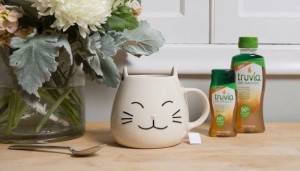
In the sugar substitutes arena, meanwhile, which is also heavily influenced by consumer perceptions of which products appear mroe ‘natural’ or ‘healthy,' much depends on what an ingredient looks like on the label, he says.
Erythritol is a great ingredient and a scary-sounding word
“Erythritol [a zero calorie sweetener used in combination with stevia in many sweeteners, including some Truvia products] is a great ingredient that provides a taste and texture experience you can’t get from dextrose, but it's a scary-sounding word, I wish it was called something different.”
As for ‘natural,’ a word which Truvia still uses – albeit in a more qualified fashion in light of civil litigation – on some labels and marketing materials, it’s a term that is problematic at best, he acknowledges.
“Because of the confusion that is out there, I think the word natural has really lost any meaning.”
*Commercial agave nectar is a processed syrup made from agave sap treated with heat and enzymes. It typically has a 70:30 fructose/glucose ratio, whereas table sugar (sucrose) is around 50:50 fructose/glucose. Agave nectar has 21 calories per tsp vs 16 for table sugar, but is somewhat sweeter, meaning you can use a bit less.
